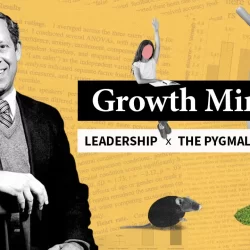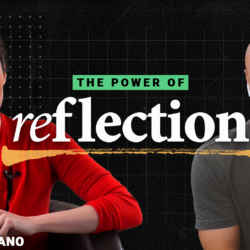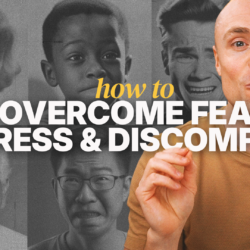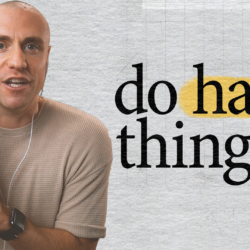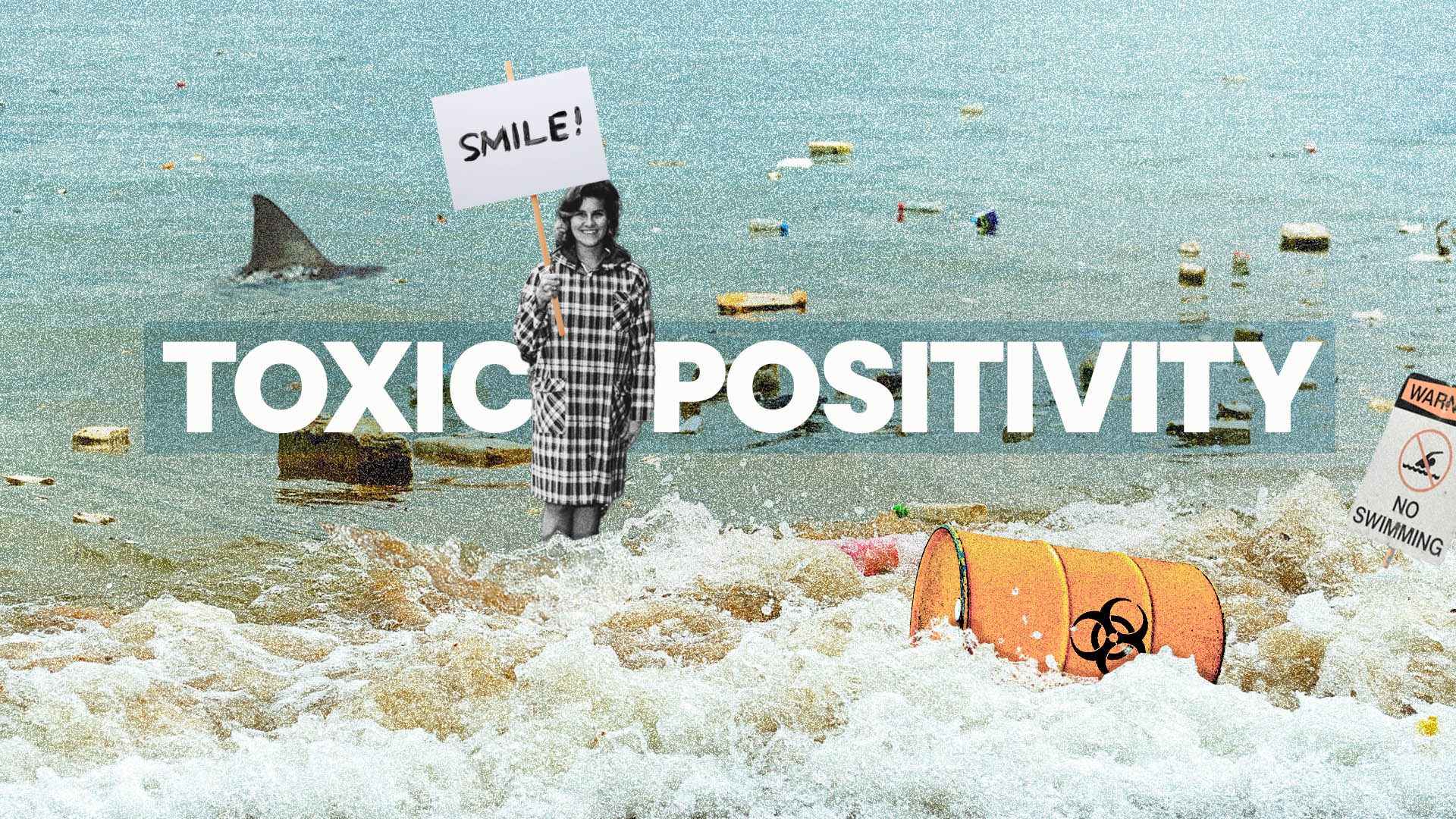
A deep-dive into toxic positivity: what it is, why it matters, how to avoid it
What is Toxic Positivity?
Positivity can be great. But when it’s used to force a positive spin on difficult emotions, it becomes toxic.
Toxic positivity is everywhere, and a bigger problem than we realize, especially if we’re talking about learning.
Whitney Goodman, author of Toxic Positivity, nails it with this tweet:
depressed? just choose joy.
grieving? just be grateful you had them for so long.
anxious? just chill, it'll all be ok!
confused? don't worry, it will all work out!
scared? hey, it could always be worse!
crying? just smile!
feeling alone? others have it worse!— Whitney Goodman, LMFT (@sitwithwhit) January 20, 2023
We hear these responses all the time. Usually they’re coming from well-meaning friends and family who are trying to help us feel better. We also say these things to ourselves.
Before a presentation, a first date, an exam. During a challenge or tough situation. After experiencing a setback.
On paper, the idea that we should always put a positive spin on negative experiences and emotions seems harmless and maybe even helpful. But when we take a deeper look into the research, it’s clear that this approach hurts more than helps.
What’s Wrong with Toxic Positivity?
Let’s zoom out and look at this logically.
Phrases like “Be happy” “Don’t worry” and “Stay positive” are all really sending the same message: how you’re feeling is wrong and instead you should feel this other way.
In other words:
Stop feeling difficult emotions and start feeling positive ones.
Difficult emotions = bad. Positive emotions = good
Cool. Cool.
This leads to a bunch of not-so-great things. Two big ones:
1. It can actually magnify the impact of difficult emotions
2. It can rob us of learning opportunities
1. Toxic Positivity can make difficult emotions worse
Emotional Suppression
I asked chatGPT to summarize the research on emotional suppression:
James Gross and his colleagues have found that emotional suppression can have a number of negative consequences. Studies have shown that emotional suppression can lead to increased physiological arousal, such as increased heart rate, blood pressure and skin conductance, as well as decreased immune function, and greater risk of mental health issues such as depression and anxiety.
Furthermore, Gross’s research has also shown that emotional suppression can lead to decreased cognitive control, attention, and memory, as well as decreased social and emotional functioning. Additionally, they found that suppression is often associated with increased rumination and negative thoughts, which in turn, can lead to more negative mood and affect.
TrevGPT’s summary: When we interpret difficult emotions as a negative thing, we usually try to suppress and get rid of them. Most of the time this doesn’t work and we often end up feeling even worse.
Of course, there’s a time and a place to properly express emotions and there are some situations where we need to keep them under wraps. But we’re not talking about when and when not to show them. We’re talking about the feelings themselves and the ways we’re interpreting them.
Shame & Type 2 Emotions
If we are told not to feel, but then we do, we feel like we’re doing something wrong.
Dr. Susan David is an expert in this field and she rules. We’ve interviewed her on our podcast and her book Emotional Agility is fantastic.
She taught me that there’s a difference between type 1 and type 2 emotions.
Think of type 1 emotions as the ones we feel in response to an event. How we feel before asking a question, a job interview, a tough conversation, when we receive difficult news from the doctor.
Type 2 emotions are our feelings about our feelings. And these are the ones that can get us into trouble.
I’ve been doing workshops for 10 years now. For the first 6 years I was a mess every time I was about to go onstage.
Before every talk, I experienced the type 1 emotion that most of us get before public speaking – nerves.
At the time, I didn’t know about any of this research, so I was on team toxic positivity. Team always feel good. I saw the nerves as a negative thing, a sign that I was doing something wrong.
And I would begin to freak out about freaking out.
“I must not have practiced enough. I don’t belong here. I’m too young to do this. I’m not smart enough to do this.”
Because if I was older, smarter, stronger – I wouldn’t feel like this.
Imposter syndrome. Shame. More tough emotions.
The more we’re told to feel the positive emotions and stop feeling the difficult ones, the more afraid of the difficult ones we become. This will send us into the type 2 spiral more times than not, exaggerating the emotional response.
Toxic positivity is meant to make us feel better, but usually makes us feel worse.2. How toxic positivity hurts learning and performance
Students at Harvard Business School took part in a sneaky brilliant experiment.
They’re divided into two groups and given brief instructions, designed to create an emotional response, before taking a math test:
“You will complete a very difficult IQ test made up of eight questions under time pressure. For each question, you will have five seconds to select the correct answer.”
Then group one is told to “try and calm down” (suppress the feelings). Group two is encouraged to reappraise (accept and reinterpret the feelings).
Group two scores 10% higher on the exam.
But perhaps the most fascinating result had nothing to do with their math scores. Heart rates and reported anxiety levels were virtually the same between both groups.
Everybody’s heart rate increased before and during the task. Everyone reported similar levels of anxiety. Everyone kind of felt the same – the key was in how those nerves were interpreted.
I can’t help but feel for group one, who most likely entered the type 2 emotion spiral during the exam. “I’m supposed to stay calm. But my heart is beating faster. I’m definitely not calm. Stay calm. I feel anxious. Stay calm.”
Their focus is likely on how they’re feeling and not the exam. No wonder their performance suffered.
Then we have group two who is, on paper, feeling similar to group one. But instead of fighting a losing battle to feel perfect during a stressful situation, they’re able to turn their attention to the task at hand.
Trying to suppress tough emotions and force positive ones can hurt performance and lead to missed growth opportunities during and after an experience. But toxic positivity can also steer us away from entire situations and experiences that could help us grow.
If the goal is to feel only positive emotions, a really easy and straightforward way to achieve that is to avoid things that cause discomfort.
We do this in big and small ways. The question we don’t ask. The application we wanted to send, but didn’t. Avoiding the important, but tough, conversation.
I apply for a job, go through the interview process, and get rejected, hello difficult emotions. The easiest way to avoid these in the future? Stop applying for jobs.
Pain = gone
Growth opportunity = gone
In short:
Toxic positivity can
– Make us feel worse when we’re hurting
– Hinder our performance under pressure
– And rob us of opportunities to grow
Nice.
The good news is this is all fixable.
How to Avoid Toxic Positivity
The truth about emotions, especially the difficult ones: we don’t have total control over how we feel in every moment of our lives. Sure, we can get better at regulating emotions. But it’s not a switch that we can turn off. These emotions hold a lot of power over our actions, especially when it comes to learning and performance.
But we can take the power back. The trick is to understand that it’s not done by fighting, suppressing, or denying them, but instead through acknowledging and accepting them.
The antidote to toxic positivity is empathy, understanding, and acceptance. Our best option is to give ourselves and others Permission to Feel – which is the title of a book by Marc Brackett (also a guest on our podcast).
Do I still get nervous before and even during my workshops – yup, all the time.
But now that I have a better understanding of emotions, now that I’m off the toxic positivity train, I know that I’m feeling weird because I care how the talk goes, and I don’t really know how it’s going to go.
A simple equation that I hope you never forget:
caring + uncertainty = discomfort
So yeah, feeling only positive emotions is totally doable. Don’t care about stuff and don’t do things that involve uncertainty – you’ll feel great!
But if the goal is to grow, to connect with someone, to be a happy and functional human, we have to do things that involve uncertainty. Which means we’re going to feel these difficult emotions – and how we interpret them matters:
There’s a huge difference between I feel nervous because I care and I feel nervous because I’m doing something wrong.
This is a tool we can all use in the big and small challenges we face. Feeling weird before asking a question, a tough conversation, a job interview, or during a big challenge or setback does not mean we’re doing something wrong or that we’re weak.
It means we’re human. That’s the human response when we venture out of our comfort zone and we’re faced with uncertainty.
We’re never going to eliminate difficult emotions from our lives. But when we avoid toxic, forced positivity, we can avoid making them worse. Without the type 2 emotional weight vest on our shoulders, we’re in a better position to grow.
Healthy Positivity
There’s nothing wrong with having hope or optimism for the future or a healthy and positive outlook on a situation. But we need to make sure that we aren’t using this positivity to force ourselves or others to feel a certain way – especially during difficult situations.
So…
Before a big moment
“Calm down, just relax”
becomes
“It’s normal to feel like this when you face uncertainty. This is a sign you care. Your body is getting ready. You’re excited.”
After a loss or during a setback
“Don’t worry about it, it’s no big deal”
becomes
“How you’re feeling right now is not fun. I can see you’re really hurting. But that feeling doesn’t mean you’re doing something wrong. This is how it feels when we lose something that we care about.”
When we avoid toxic positivity and instead give ourselves permission to feel we’ll be in a better position to process the emotions, work through the situation, perform at our best, and grow from the things that make us feel uncomfortable.




